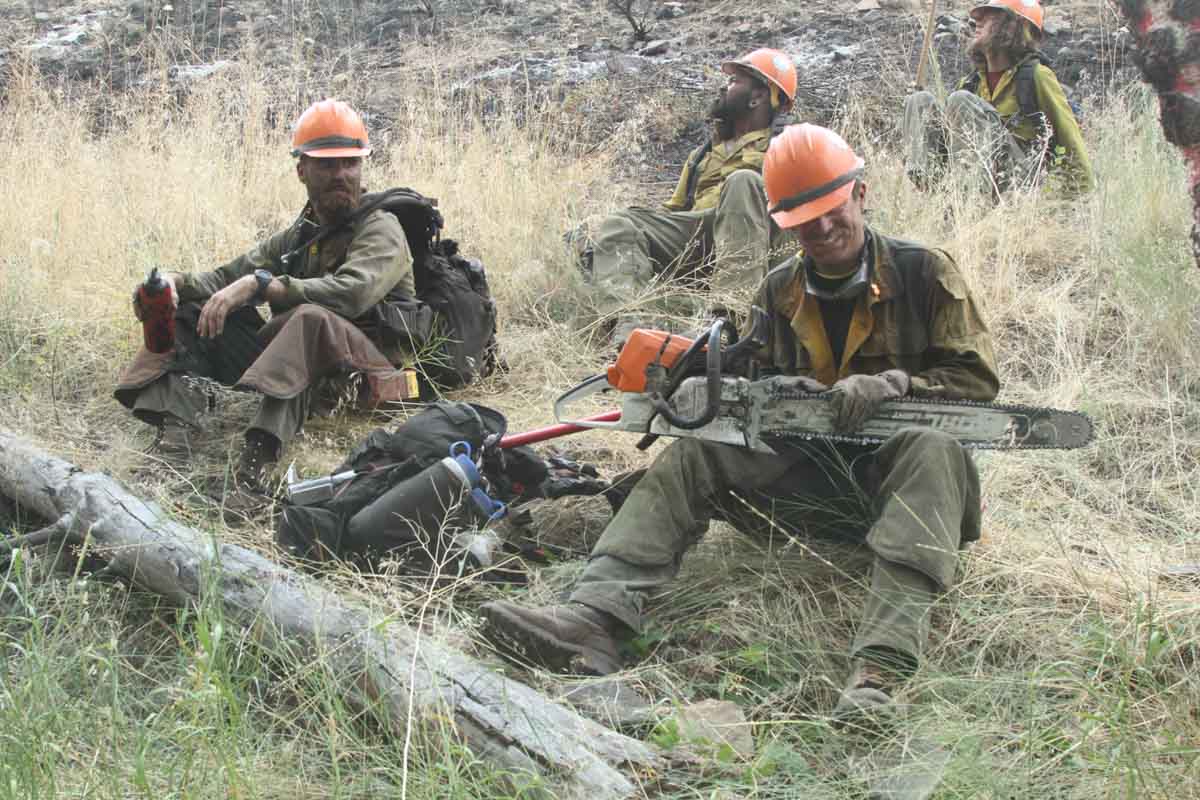A bill in the U.S. Senate to remove overtime pay caps for wildland firefighters, according to a report by Arizona Public Radio, might remove that cap, after many years of arguing whether fire crews receive overtime pay when they work overtime hours. Federal crews in both the DOI and the USDA face annual limits on the number of hours of overtime they can work — but they often exceed those limits, and it’s become more of an issue as fire seasons become longer with bigger fires.
Riva Duncan, the vice president of Grassroots Wildland Firefighters, explains that the group has endorsed this legislation. “However, we’ve also highlighted the gaps it does not address,” she says. “While we support lifting this pay cap, the reality is it affects only a few of those at the highest levels (GS-13 and above) engaged in fire management. I spent several years as a Forest Fire Chief and Deputy (GS-12 and GS-13) on high complexity national forests with long, complex fire seasons, and I never hit the cap. But I do know this affects many ICs who are GS-13 or higher — on IMTs as well as NIMO personnel — and it also affects some agency administrators. We believe those folks deserve to be paid for the work they’re doing and the sacrifices they make.”

According to bill sponsor Sen. Kyrsten Sinema, the Wildland Firefighter Fair Pay Act would ensure firefighters receive the overtime time pay they’re owed. The USFS says up to 500 supervisors either stop working or work on without pay when they reach the pay cap each year.
Back in November, Senator Alex Padilla (D-Calif.) and Representative Zoe Lofgren (D-Calif.) introduced legislation to permanently raise caps on overtime pay for federal firefighters. The bill would increase the pay caps to compensate federal wildland firefighters for their service. The legislation is cosponsored by Senators Steve Daines (R-Mont.), Martin Heinrich (D-N.M.), Ben Ray Luján (D-N.M.), Catherine Cortez Masto (D-Nev.), Jacky Rosen (D-Nev.), and Jon Tester (D-Mont.).
“As increasingly devastating wildfire seasons scorch our forests and endanger communities across the West, our federal wildland firefighting force deserves our full support,” said Senator Padilla. “The overtime pay caps force firefighters to make an impossible choice: walk off the line or work for free. This legislation is a necessary step to make sure they get fair compensation.”

In mid-November the House passed an amendment to extend a temporary pay increase of $20,000 (annually per firefighter) through next year, which was approved by President Biden. Another bill to make a pay hike permanent remains stalled, though, and NPR’s Morning Edition reported that this latest budget deal averting a federal shutdown will also — for now — avert a massive pay cut for federal firefighters.
“Federal wildland firefighters perform dangerous, back-breaking jobs protecting our communities. Yet after they reach pay caps, they receive no overtime pay for the additional hours they work,” said Representative Zoe Lofgren. “This commonsense legislation will strengthen the workforce and ensure firefighters receive the overtime pay they deserve.” In mid-November, Government Executive reported that the House and then the Senate — and yet again, at the last minute — passed short-term resolutions to avoid a government shutdown and pay employees on time.
But most agencies are funded only through February 2 and some — Veterans Affairs, Agriculture, Energy, Transportation, and Housing and Urban Development (plus construction projects for Defense) will remain at fiscal 2023 funding levels until January 19.

Despite risking their lives and traveling cross-country for months at a time to fight wildfires, many of the 11,000+ federal firefighters live paycheck to paycheck, working overtime hours without overtime pay. This inequity has contributed in a major way to a firefighter workforce shortage — in both recruitment and retention. Something like 20 percent of Forest Service permanent firefighter positions are vacant, and the federal government cannot — or won’t choose to — compete with pay rates offered by state and local agencies.
Three years ago, Bill Gabbert wrote that Diane Feinstein had introduced the Wildland Firefighter Pay Act, a bill that would raise the maximum limit on overtime pay for federal firefighters. The limit at that time affected higher level employees at the GS-12 and above level, along with some GS-11s depending on whether they were exempt from provisions in the Fair Labor Standards Act. Under those provisions, if they worked hundreds of hours of overtime they might reach the cap, after which they earn no more money. In some cases later in the fire season, employees who spent a long season fighting fires were told they’d earned too much and were forced to pay some of it back.

Proposed legislation in 2021 would have eliminated the annual and pay period limits and created a new limit that set the maximum annual pay including overtime at Level II of the Executive Schedule, which in 2020 was $197,300.
The USFS estimated then that up to 500 senior-level firefighters either stop participating or do not request pay for hours worked once they reach the cap. This has a huge effect on wildfire response capabilities.







